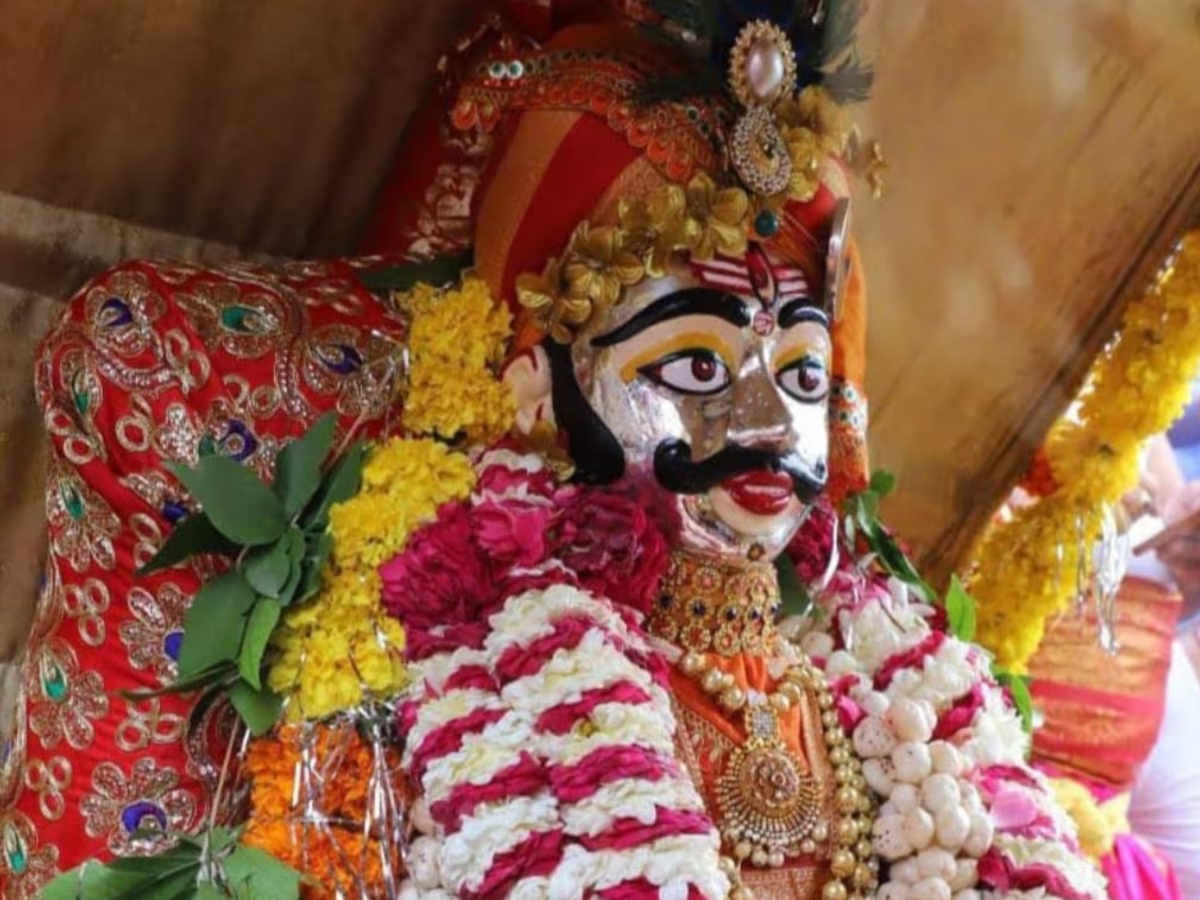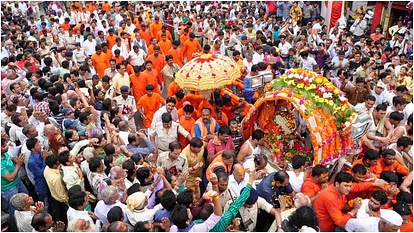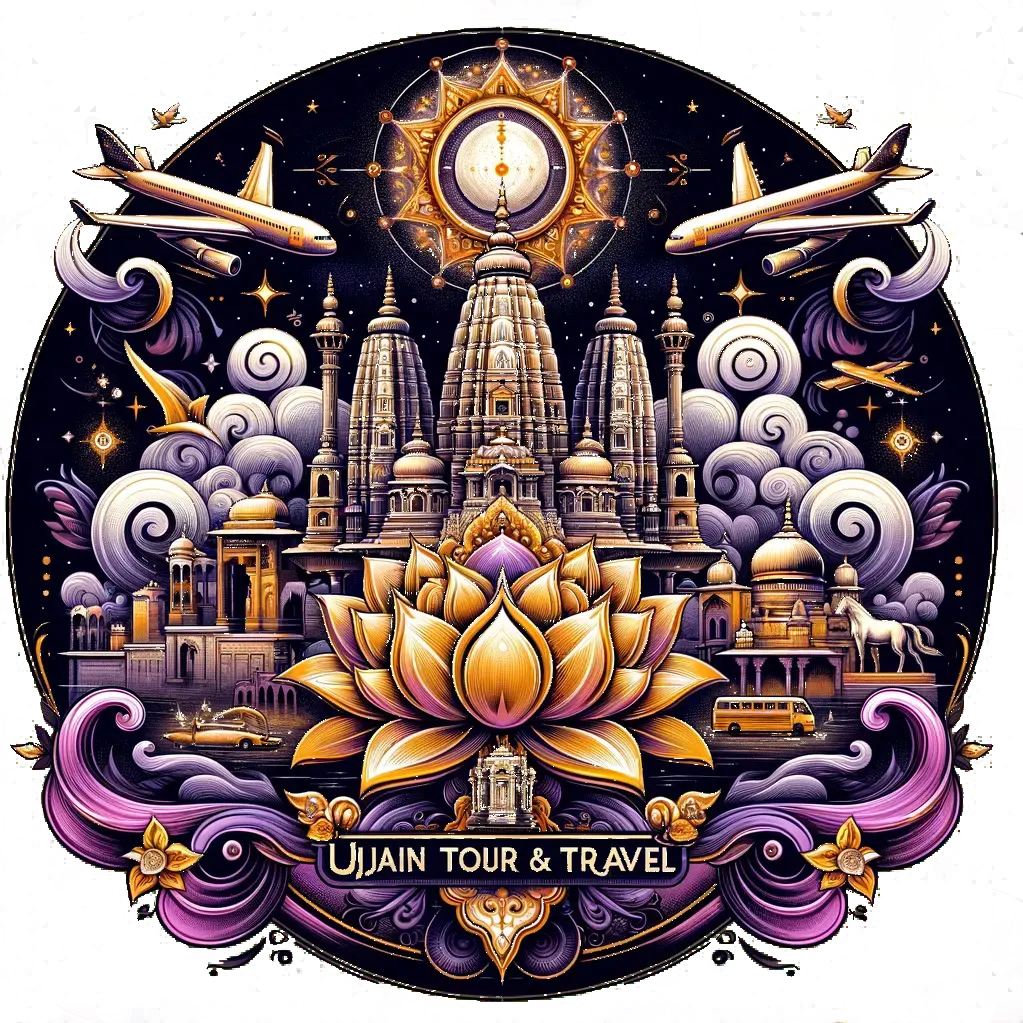
Introduction to Sawan Sawari
Sawan Sawari is a grand religious procession held every year in Ujjain , Madhya Pradesh, during the holy month of Shravan (Sawan) , which is dedicated to Lord Shiva. It is a highly anticipated spiritual event that celebrates the devotion to Lord Mahakaleshwar , one of the twelve Jyotirlingas (sacred Shiva shrines) in India. Each Monday during this month, a ceremonial procession of Lord Mahakal is carried through the streets of Ujjain, allowing devotees to seek blessings and immerse themselves in the divine atmosphere.
The Shahi Sawari on the last Monday of Shravan is the grandest and most important of these processions.

What is Sawan Sawari?
The Sawan Sawari is a traditional procession where the deity of Lord Mahakal, the presiding deity of Ujjain, is placed on a palanquin (palki) and taken out in a royal-style journey through the city. This procession takes place every Monday (Somvar) during the Shravan month. These Mondays are considered highly auspicious for worshiping Lord Shiva.
Lord Mahakal is carried in different forms during each Sawan Sawari, symbolizing various aspects of his divine personality, such as his roles as the protector, the destroyer of evil, and the benevolent ruler of the universe. Thousands of devotees from across the country come to Ujjain to witness these processions and participate in the spiritual rituals.
Importance of Sawan Sawari
The Sawan Sawari holds immense religious importance for devotees of Lord Shiva. The month of Shravan is considered the holiest month for worshiping Lord Shiva, and Mondays during this month are especially sacred. The processions serve as a way for devotees to express their devotion and reverence for Lord Mahakal. It is believed that witnessing or participating in the Sawan Sawari brings blessings, spiritual purification, and relief from sins.
- Devotional Significance: The procession allows devotees to feel connected to the divine presence of Lord Mahakal as he blesses the city and its people.
- Cultural Significance: The event showcases the rich cultural and religious traditions of Ujjain, which is one of the oldest cities in India and a major center for Shaivism.
- Community Participation: The processions foster a sense of unity among the local communities, as thousands of people come together to organize and participate in the events.
Elements of Sawan Sawari
Each Sawan Sawari includes a variety of rituals, decorations, and performances. Some key elements are:
- Palanquin (Palki): The idol of Lord Mahakal is placed on an intricately decorated palanquin, which changes themes each week. The palki is adorned with flowers, jewels, and religious symbols.
- Jhakis (Tableaus): Along with the main procession, there are several beautifully crafted jhakis (tableaus) depicting mythological stories, the life of Lord Shiva, and various religious themes.
- Musical Performances: Devotional music, including the chanting of bhajans and kirtans, fills the air, creating an atmosphere of devotion and joy.
- Devotees: Thousands of devotees walk along with the procession, chanting “Har Har Mahadev” and offering prayers as the palanquin passes through the city.
- Priests and Rituals: The procession is led by priests performing rituals and offering holy water, milk, and flowers to Lord Mahakal.
- Security and Arrangements: The local administration ensures safety and smooth management, given the large crowds that gather for these processions.
2025 Dates for Sawan Sawari
In 2025 the first Sawan Sawari is scheduled for 22nd July, marking the start of the holy month of Shravan. The dates for the Sawan Sawari processions are as follows:
- First Sawan Sawari: 14th July 2025
- Second Sawan Sawari: 21st July 2025
- Third Sawan Sawari: 28th July 2025
- Fourth Sawan Sawari: 04th August 2025
- Fifth Sawan Sawari: 11th August 2025
- Shahi Sawari (Grand Procession): 18th August 2025
What is the Shahi Sawari?
The Shahi Sawari, or "Royal Procession," is the final and most important procession of the Shravan month, held on the last Monday of Shravan. This procession is called "Shahi" (royal) because it is organized with great pomp and ceremony, symbolizing Lord Mahakal's royal journey through Ujjain.
- Royal Significance: The Shahi Sawari is a grand spectacle where Lord Mahakal is carried in a golden palanquin (palki), symbolizing his divine kingship. The procession reflects the ancient tradition of carrying kings in royal processions.
- Lavish Decorations: The palanquin is decorated with gold, jewels, and flowers. Priests, dressed in ceremonial attire, carry the palanquin, while devotees and religious groups follow along with singing, dancing, and prayers.
- Mythological Depictions: Several Jhakis (tableaus) depicting mythological stories, religious themes, and scenes from the life of Lord Shiva accompany the procession. These add color and cultural depth to the event.
Why is it Called the Shahi Sawari?
The term Shahi Sawari translates to "Royal Procession" because it is believed that Lord Mahakal is the divine ruler of Ujjain. During this procession, he is treated like a king, carried through the city in a regal manner. The grand scale of the event, the involvement of the city’s dignitaries, and the large crowds of devotees enhance the royal ambiance of the event.
Different Jhakis in Sawan Sawari and Shahi Sawari
In both the regular Sawan Sawaris and the Shahi Sawari, jhakis or tableaus are a major attraction. These are elaborately decorated floats, usually depicting scenes from Hindu mythology, such as:
- Samudra Manthan (Churning of the Ocean)
- Shiva as Nataraja (Lord of Dance)
- Shiva-Parvati’s Union
- Stories of Shiva defeating demons
- Shiva’s meditation in the Himalayas
During the Shahi Sawari, these jhakis are particularly elaborate, with each float representing different aspects of Lord Shiva's life and the virtues he embodies.
Future Dates for Sawan Sawari and Shahi Sawari
The Sawan Sawari and Shahi Sawari are held annually during the Shravan month according to the Hindu calendar, which usually falls in July-August in the Gregorian calendar. The exact dates change each year based on the lunar cycle.
- 2025 Sawan Sawari: Starting from mid-July and ending in mid-August.
- Shahi Sawari 2025: Likely to take place around the last Monday of August.
Conclusion
The Sawan Sawari and Shahi Sawari are not just religious events but grand cultural celebrations that bring the entire city of Ujjain together. The divine presence of Lord Mahakal traveling through the streets, the vibrant atmosphere, the devotion of the people, and the spiritual fervor make these processions a unique and profound experience.
The Shahi Sawari, in particular, is a reflection of the rich spiritual and cultural heritage of Ujjain. It stands as a testimony to the enduring power of faith and tradition, attracting devotees from all over the country. Whether you’re a pilgrim seeking blessings or a visitor curious about Indian culture, the Sawan Sawari and Shahi Sawari in Ujjain offer an unforgettable spiritual journey that leaves a lasting impression.
